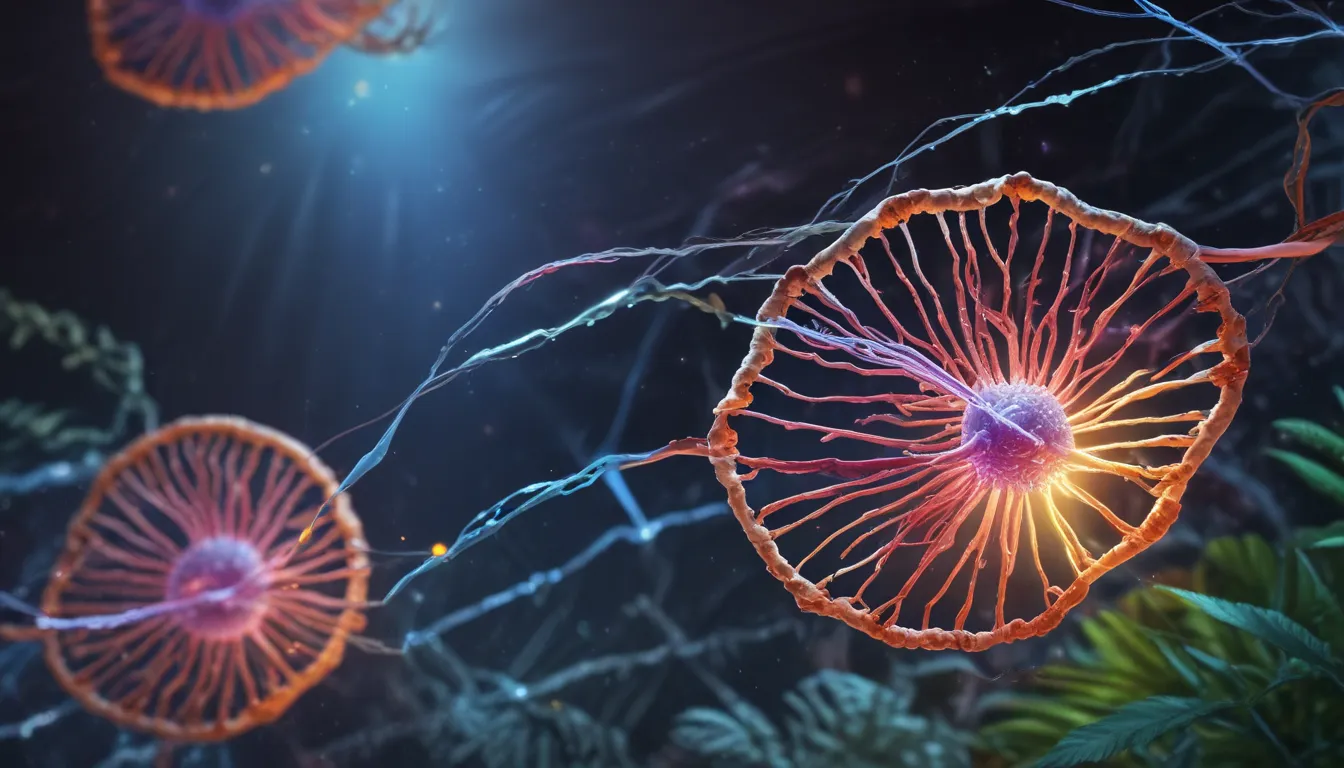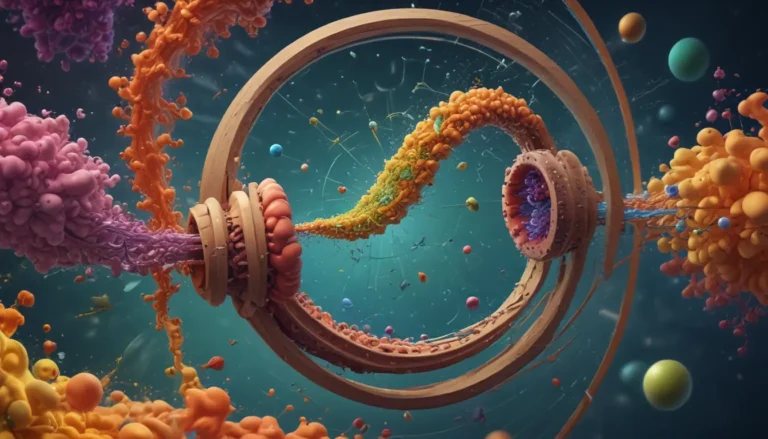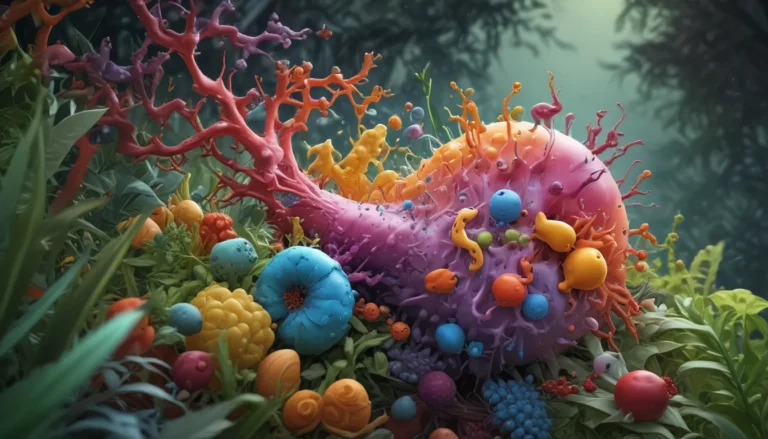A Note About Images: The images used in our articles are for illustration purposes only and may not exactly match the content. They are meant to engage readers, but the text should be relied upon for accurate information.
Are you intrigued by the immense potential of CRISPR-Cas9, the groundbreaking gene editing tool that has revolutionized molecular biology? Dive into the captivating world of CRISPR-Cas9 as we uncover 16 fascinating facts about this extraordinary technology. From its humble origins in bacterial immune systems to its vast applications in medicine, agriculture, and beyond, CRISPR-Cas9 promises to shape the future of genetic research and biotechnology in unprecedented ways.
Unveiling the Magic of CRISPR-Cas9:
- CRISPR-Cas9: A Powerful Gene Editing Tool: With the ability to make precise changes to DNA, CRISPR-Cas9 offers limitless possibilities for genetic modifications with far-reaching implications in various fields.
The Journey of Discovery:
- Bacteria Holds the Key: Originally found in bacteria, the CRISPR-Cas9 system serves as a potent defense mechanism against viral invaders.
Decoding the Terminology:
- CRISPR Demystified: The acronym stands for Clustered Regularly Interspaced Short Palindromic Repeats, representing a distinctive DNA sequence in bacterial genomes.
The Heroes Behind the Scenes:
- Cas9 at Your Service: An RNA-guided protein, Cas9 acts as the molecular scissors, precisely cutting DNA at designated locations guided by RNA molecules.
The Versatile Applications:
- Pinpoint Precision: CRISPR-Cas9’s programmable nature allows scientists to target and edit specific genes with unparalleled accuracy.
A Glimpse into Tomorrow:
- Medical Marvels: CRISPR-Cas9 shows promise in revolutionizing medical treatments, offering hope for genetic disorder corrections and innovative therapies.
Celebrating Excellence:
- Nobel-Worthy: In 2020, Jennifer Doudna and Emmanuelle Charpentier received the Nobel Prize in Chemistry for their pioneering work on CRISPR-Cas9.
Efficiency at Its Best:
- Cost-Effective and Swift: Compared to traditional gene editing methods, CRISPR-Cas9 is not only cost-effective but also enables rapid and precise modifications.
Ethical Conundrums:
- Navigating the Ethical Landscape: The power of CRISPR-Cas9 raises ethical dilemmas, prompting discussions on genetic engineering and the implications of its advancements.
Paving the Way for Agricultural Advancements:
- Harvesting Innovations: Through gene modifications in crops, CRISPR-Cas9 can boost yields, enhance resistance to pests, and enrich nutritional content.
Embracing Progress:
- Acknowledging Limitations: While impressive, CRISPR-Cas9 is not without flaws, with potential off-target effects that necessitate further refinement and testing.
The Legal Arena:
- Patent Wars: Various entities are embroiled in a legal battle over the rights and ownership of CRISPR-Cas9 technology, highlighting its commercial significance.
Promising Hope:
- Beacon of Light: CRISPR-Cas9 offers a beacon of hope in the treatment of genetic disorders, promising advancements in correcting mutations responsible for various ailments.
Unlocking Genetic Mysteries:
- Animal Alterations: Scientists have harnessed CRISPR-Cas9 to engineer animals with specific genetic traits, opening doors to groundbreaking advancements in agriculture and medicine.
Shaping Ecosystems:
- Gene Drive Revolution: With the potential for gene spread through populations, CRISPR-Cas9 introduces transformative possibilities in ecosystems, raising both excitement and ethical concerns.
Navigating the Uncertainty:
- Future Prospects: As scientific exploration continues, the future of CRISPR-Cas9 remains dynamic, promising groundbreaking discoveries while simultaneously raising ethical considerations.
In Conclusion:
In conclusion, CRISPR-Cas9 stands as a transformative force in genetic research and biotechnology. From its bacterial origins to its far-reaching applications in agriculture, medicine, and beyond, the allure of CRISPR-Cas9 lies in its profound impact on unlocking the mysteries of genetic code. As we tread the path of scientific discovery, it is essential to stay informed and engaged with the ethical dimensions of gene editing technologies like CRISPR-Cas9.
FAQs:
- What is CRISPR-Cas9?
-
CRISPR-Cas9 is an advanced gene-editing tool derived from bacterial immune systems, offering precise modifications to DNA sequences.
-
How does CRISPR-Cas9 function?
-
CRISPR-Cas9 utilizes guide RNA to target specific DNA sequences, with the Cas9 enzyme acting as the molecular scissors to cut DNA for genetic modifications.
-
What are the potential applications of CRISPR-Cas9?
-
CRISPR-Cas9 finds applications in gene therapy, genetic engineering, studying gene function, and developing new antibiotics, showcasing its versatility across various domains.
-
Are there limitations to CRISPR-Cas9 technology?
-
Yes, CRISPR-Cas9 has limitations such as off-target effects, ethical considerations, and potential unintended consequences that necessitate careful deliberation and refinement.
-
What ethical implications arise from using CRISPR-Cas9?
- The ethical implications of CRISPR-Cas9 encompass concerns regarding designer babies, germline editing, and unforeseen consequences, prompting a nuanced dialogue on ethical frameworks for its utilization.
Embark on a journey of discovery as we unravel the unparalleled capabilities and ethical dimensions of CRISPR-Cas9, a technology that promises to redefine the landscape of genetics and biotechnology. Stay informed, stay curious, and embrace the future of gene editing with CRISPR-Cas9.






